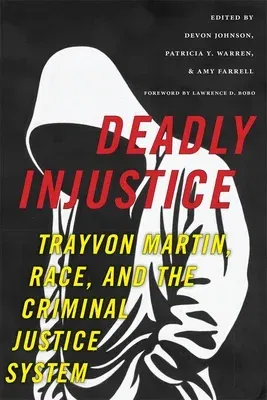The murder of unarmed teenager Trayvon Martin and the subsequent trial
and acquittal of his assailant, George Zimmerman, sparked a passionate
national debate about race and criminal justice in America that involved
everyone from bloggers to mayoral candidates to President Obama himself.
With increased attention to these causes, from St. Louis to Los Angeles,
intense outrage at New York City's Stop and Frisk program and escalating
anger over the effect of mass incarceration on the nation's African
American community, the Trayvon Martin case brought the racialized
nature of the American justice system to the forefront of our national
consciousness. Deadly Injustice uses the Martin/Zimmerman case as a
springboard to examine race, crime, and justice in our current criminal
justice system.
Contributors explore how race and racism informs how Americans think
about criminality, how crimes are investigated and prosecuted, and how
the media interprets and reports on crime. At the center of their
analysis sit examples of the Zimmerman trial and Florida's controversial
Stand Your Ground law, providing current and resonant examples for
readers as they work through the bigger-picture problems plaguing the
American justice system. This important volume demonstrates how highly
publicized criminal cases go on to shape public views about offenders,
the criminal process, and justice more generally, perpetuating the same
unjust cycle for future generations. A timely, well-argued collection,
Deadly Injustice is an illuminating, headline-driven text perfect for
students and scholars of criminology and an important contribution to
the discussion of race and crime in America.

